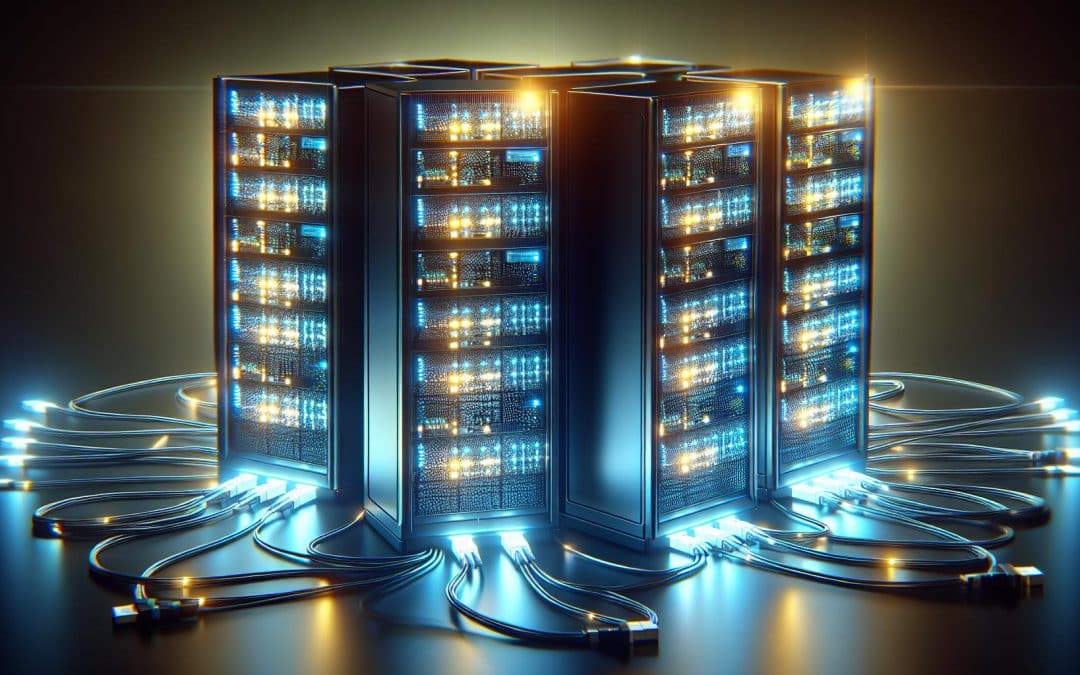If you’re delving into the world of Solana, you’ve likely come across the crucial role of validator nodes. These nodes play a pivotal part in validating transactions and maintaining the integrity of the Solana blockchain. As you navigate the complexities of decentralized networks, understanding the significance of validator nodes is key to grasping the inner workings of Solana’s ecosystem.
In Solana’s high-performance blockchain, validator nodes act as gatekeepers, ensuring consensus and security across the network. By participating in the consensus algorithm, these nodes validate transactions, propose new blocks, and ultimately contribute to the network’s overall efficiency. As you explore the realm of Solana and its innovative approach to scalability, diving deeper into the realm of validator nodes unveils the backbone of this cutting-edge blockchain technology.
Overview of Validator Nodes in Solana
Validator nodes play a critical role in the Solana blockchain ecosystem. They are essential for validating transactions, maintaining network integrity, ensuring consensus, and improving overall efficiency. Understanding the significance of validator nodes is key to unraveling the inner workings of Solana’s high-performance blockchain and its innovative scalability approach.
Validator nodes in Solana contribute to the robustness and security of the network by validating and authenticating transactions. They participate in the consensus mechanism, helping to confirm the validity of transactions and secure the blockchain against fraudulent activities. By running validator nodes, you actively contribute to the decentralized nature of the Solana network and help maintain its integrity.
One of the key advantages of validator nodes in Solana is their contribution to high transaction throughput. Solana’s cluster technology, Tower BFT consensus, and Gulf Stream Protocol enable validator nodes to process a large number of transactions quickly and efficiently. This high throughput capability contributes to Solana’s reputation for low transaction fees and fast transaction processing times.
Additionally, validator nodes on Solana have the opportunity to earn staking rewards by participating in the network consensus and validating transactions. By staking your tokens and running a validator node, you not only support the network but also have the potential to earn rewards for your contribution.
In the world of decentralized finance (DeFi), validator nodes play a crucial role in supporting the development of DeFi applications and services on the Solana blockchain. They help enable the creation and execution of smart contracts, non-fungible tokens (NFTs), and various decentralized applications (dApps) on Solana, contributing to the growth of the Web3 ecosystem.
To sum up, validator nodes form the backbone of Solana’s blockchain infrastructure, ensuring efficient transaction processing, network security, and decentralization. By actively participating in running a validator node on Solana, you not only contribute to the network’s success but also have the opportunity to earn rewards while supporting the growth of decentralized applications and DeFi projects on the platform.
Benefits of Running a Validator Node

Running a validator node on the Solana blockchain ecosystem offers you various advantages that contribute to the network’s efficiency, security, and your potential rewards. Here’s why you should consider becoming a validator node operator on Solana:
Enhanced Network Integrity
By running a validator node on Solana, you actively participate in validating transactions, maintaining network integrity, and ensuring consensus. Your contribution plays a crucial role in upholding the network’s security and robustness.
Opportunity for Staking Rewards
As a validator node operator, you have the opportunity to earn staking rewards on Solana. By staking your tokens and participating in the consensus mechanism, you can receive rewards for helping secure the network and validating transactions.
Support for Decentralized Finance (DeFi) Applications
Validator nodes are essential for supporting the growth of decentralized finance applications on Solana, such as smart contracts, NFTs, and dApps. Running a validator node helps in promoting the decentralization of finance and the development of innovative Web3 projects on the Solana blockchain.
Efficient Transaction Processing
Solana’s validator nodes enable high transaction throughput and low fees, making transaction processing fast and cost-effective. By running a validator node, you contribute to maintaining the network’s scalability features and efficient transaction processing capabilities.
Community Engagement and Rewards
Being a validator node operator allows you to actively engage with the Solana community, participate in network upgrades, and contribute to the overall growth of the ecosystem. Additionally, you have the opportunity to earn rewards for your contributions to the Solana blockchain.
Running a validator node on Solana presents you with the opportunity to play a vital role in ensuring network security, earning staking rewards, supporting decentralized finance applications, and actively engaging with the Solana community. By becoming a validator node operator, you contribute to the efficient operation of the Solana blockchain while potentially benefiting from rewards and network participation.
Requirements to Run a Validator Node
When considering running a validator node on the Solana network, there are specific requirements you need to meet to participate effectively and contribute to the network’s robustness. Here are the key factors to keep in mind:
Hardware Specifications
To operate a validator node on Solana, you’ll require a robust hardware setup. Here’s a brief overview of the hardware specifications needed:
- Processor: You need a high-performance processor capable of handling the computational demands of validating transactions efficiently. Look for processors with multiple cores and high clock speeds.
- RAM: Sufficient RAM is crucial for smooth operation. Ensure you have ample memory to support the network’s transaction processing requirements effectively. Consider at least 32GB of RAM for optimal performance.
- Storage: Fast and reliable storage is essential for storing the Solana blockchain data. Opt for SSDs with high read and write speeds to ensure quick access to the necessary information.
- Internet Connection: A stable and high-speed internet connection is a must to communicate with other nodes on the network and synchronize the blockchain data effectively.
Software and Configuration
In addition to the hardware requirements, you’ll also need to focus on the software and configuration aspects. Here’s what you need:
- Operating System: Choose a stable operating system that supports the Solana node software. Popular choices include Linux distributions like Ubuntu or CentOS.
- Solana Node Software: Install the official Solana node software on your system. This software is crucial for participating in block production, transaction validation, and network consensus.
- Security Measures: Implement robust security measures to protect your validator node from potential threats. This includes regular software updates, firewall configurations, and secure access protocols.
Staking Requirements
Running a validator node typically involves staking a certain amount of SOL tokens as collateral. The exact staking requirements may vary, so be sure to check the specific staking conditions and token amounts needed to operate a validator node on the Solana network.
By meeting these hardware, software, and staking requirements, you can play a vital role in the Solana ecosystem as a validator node operator. Your contributions help secure the network, validate transactions, and enhance the overall efficiency of the blockchain, all while earning staking rewards for your participation.
How to Set Up a Validator Node in Solana
To become a validator node operator in the Solana blockchain ecosystem, follow these steps to contribute to network integrity and earn staking rewards:
Install Required Software
- Choose a Compatible Operating System: Select an OS supported by Solana, such as Windows, macOS, or Linux.
- Install Official Solana Node Software: Download and set up the official Solana node software provided by the Solana Foundation.
Set Up Hardware
- High-Performance Processor: Opt for a robust processor to handle the computational demands of validating transactions.
- Ample RAM: Ensure sufficient RAM for smooth operation and efficient processing.
- Fast and Reliable Storage: Utilize fast, reliable storage to store blockchain data and facilitate quick access.
- Stable Internet Connection: Maintain a stable internet connection to sync with the Solana network consistently.
Implement Security Measures
- Secure Your Node: Follow best security practices to protect your validator node from potential threats and attacks.
- Backup Your Data: Regularly back up your node’s data to prevent data loss and ensure continuity.
- Stake a Certain Amount: Stake SOL tokens as collateral to participate in the consensus mechanism and receive staking rewards.
- Contribute to Consensus: Validate transactions and proposals to support network consensus and integrity.
By setting up your validator node with the necessary software, hardware, security measures, and staking SOL tokens, you’ll actively contribute to the Solana blockchain ecosystem while earning rewards and promoting decentralized finance applications on Solana.
Best Practices for Maintaining a Validator Node
When it comes to maintaining a validator node in the Solana blockchain, several best practices can help ensure optimal performance and efficiency. Following these practices can contribute to the stability of the network and maximize your staking rewards. Here are some essential tips for effectively managing your validator node:
- Regular Monitoring and Maintenance:
- Consistently monitor the performance of your validator node to identify any potential issues promptly.
- Regularly update the node software to leverage the latest features and security enhancements.
- Implement a proactive maintenance schedule to ensure smooth operation.
- Optimized Hardware Configuration:
- Ensure your hardware meets the recommended specifications for running a Solana validator node effectively.
- Opt for high-performance hardware components to handle the computational demands of transaction validation.
- Security Measures Implementation:
- Implement robust security protocols to safeguard your validator node against potential cyber threats.
- Utilize encryption techniques and secure network configurations to protect your node’s integrity.
- Network Connectivity and Redundancy:
- Maintain a reliable internet connection with sufficient bandwidth to support the data transmission requirements of the Solana network.
- Consider implementing redundancy measures to mitigate the impact of network interruptions on your validator node’s operation.
- Regular Backups and Data Protection:
- Backup your validator node data regularly to prevent data loss in case of system failures.
- Store backups securely in off-site locations or encrypted cloud storage for enhanced data protection.
By following these best practices, you can effectively maintain your validator node in the Solana blockchain ecosystem, contribute to network reliability, and capitalize on staking rewards. Adhering to these guidelines will help you optimize the performance of your validator node and support the decentralized finance applications and transactions on Solana.
Conclusion
Validator nodes play a crucial role in the Solana blockchain ecosystem by ensuring transaction validation, network integrity, and consensus maintenance. By meeting hardware and software requirements, setting up a validator node allows you to contribute to network robustness and security. Implementing best practices like regular monitoring, security measures, and network optimization can enhance the performance of your validator node. By following these guidelines, you can not only support the efficiency of the Solana network but also maximize staking rewards and contribute to the growth of decentralized finance applications. Stay committed to maintaining your validator node to uphold network reliability and participate actively in the Solana ecosystem.
Frequently Asked Questions
What is the role of validator nodes in the Solana blockchain ecosystem?
Validator nodes in Solana validate transactions, ensure network integrity, and maintain consensus. They enhance network robustness, security, and efficiency by authenticating transactions and participating in the consensus mechanism.
What are the requirements for setting up a validator node in Solana?
Setting up a validator node in Solana requires specific hardware and software, including choosing a compatible operating system, installing official Solana node software, and implementing security measures.
What are the best practices for maintaining a validator node in Solana?
Best practices for maintaining a Solana validator node include regular monitoring, hardware optimization, security implementation, network connectivity, backups, and data protection. Following these practices can optimize performance and maximize staking rewards.
How do validator nodes contribute to decentralized finance applications on Solana?
Validator nodes support decentralized finance applications on Solana by ensuring network reliability, high transaction throughput, and low fees. They play a crucial role in maintaining the integrity and efficiency of the blockchain ecosystem.

